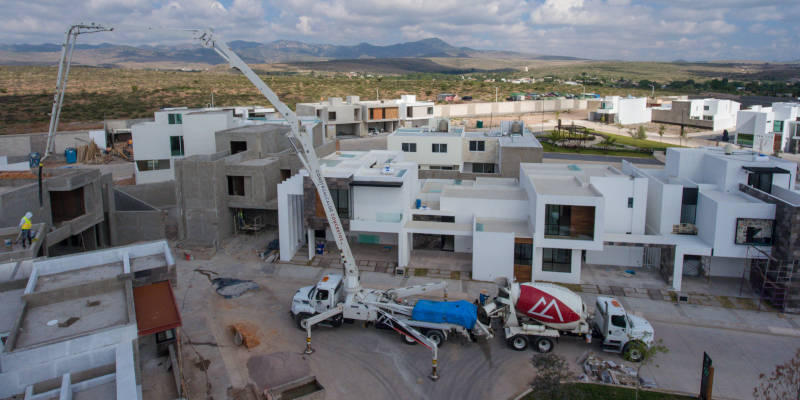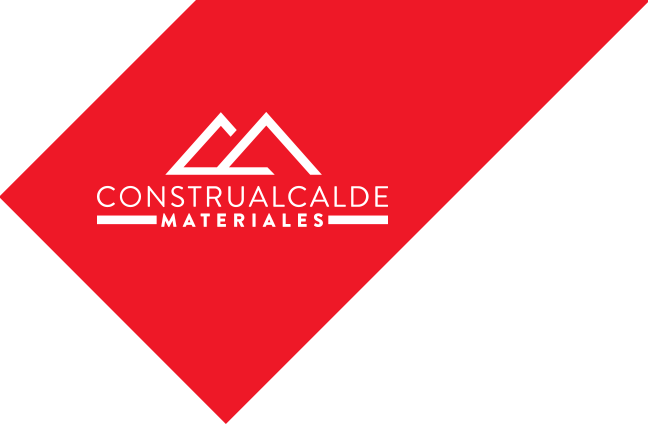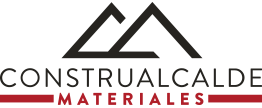There are many excellent reasons to prefer ready-mix concrete for your architectural or engineering projects. At Construalcalde, we highlight the characteristics and advantages of ready-mix concrete.

Historical Background
Ancient builders developed combinations of volcanic materials that, when mixed with water and dried, possessed adhesive properties and strength that allowed constructions to endure for centuries. With the advent of the modern era, concrete experimentation resumed, leading in the late 18th and 19th centuries to the development of high-compression-resistance concrete.
Advantages of Ready-Mix Concrete
Today, the use of concrete is widespread throughout the world, and its physical and chemical characteristics can be controlled through careful selection of additives and aggregates. Concrete is manufactured for every specific need on every construction site. The big question is: Why prefer ready-mix concrete to concrete manufactured on-site?
Some of the advantages of ready-mix concrete are:






Types of Ready-Mix Concrete
Depending on the element to be built and its requirements, there are several common types:
-
Standard Ready-Mix Concrete — The most common blend used in general civil works.
-
Architectural & Decorative Concrete — Includes stone components and additives for textures and colors, tailored to design aesthetics.
-
Fast-Setting Concrete — Contains special additives that enable rapid hardening, allowing early formwork removal and reduced construction time. Recommended for temperatures below 10 °C, this type also offers above-average durability and acid resistance.
-
Fiber-Reinforced Concrete — Incorporates fibers to improve crack resistance, beneficial in early stages of curing for structural elements.
-
Flowable Fill (Self-Leveling Fill) — Designed for pumping and integration into reinforcing elements, pipelines, or other structures, creating solid installations.
-
Compaction Concrete — Formulated with minimal slump and high fluid resistance, compacted onsite with rollers; ideal for drainage works and environments exposed to constant water flow.
-
Self-Compacting Concrete — Highly fluid and capable of self-leveling without vibration; with plasticizers, it may exceed 50 MPa strength.
-
Porous Concrete — Characterized by permeability to prevent water accumulation, aiding pavement drainage, reducing heat, and improving tire grip.
Additionally, there are custom properties for specific applications—such as antibacterial formulations for operating rooms, kitchens, or hygienic spaces. Consult the ready-mix concrete experts and enjoy the benefits of its application in your project.
Ready-Mix Concrete Designs
At Construalcalde, our ready-mix concrete designs are tailored to each project’s needs. Benefit from precise mixes that guarantee strength, durability, and continuous quality control, supported by a professional team committed to your project’s success.
| Compression Strength | |
|---|---|
| Direct Pour/Pumping | |
| 100 kg/cm² | 150 kg/cm² |
| 200 kg/cm² | 250 kg/cm² |
| 300 kg/cm² | 350 kg/cm² |
| 400 kg/cm² | 450 kg/cm² |
| Concrete with TMA 40 | |
|---|---|
| Direct Pour | |
| 150 kg/cm² | 200 kg/cm² |
| 250 kg/cm² | 300 kg/cm² |
| Flowable Fill | |
|---|---|
| Direct Pour/Pumping | |
| RF 25 kg/cm² | RF 30 kg/cm² |
| RF 35 kg/cm² | RF 40 kg/cm² |
| RF 45 kg/cm² | RF 50 kg/cm² |
| RF 60 kg/cm² | RF 70 kg/cm² |
| RF 75 kg/cm² | RF 80 kg/cm² |
| RF 85 kg/cm² | RF 90 kg/cm² |
| RF 100 kg/cm² | |
| Flexural Strength | |
|---|---|
| Direct Pour | |
| 38 kg/cm² | 40 kg/cm² |
| 42 kg/cm² | 45 kg/cm² |
| 48 kg/cm² | 50 kg/cm² |
| Concrete with TMA 10 | |
|---|---|
| Direct Pour/Pumping | |
| 100 kg/cm² | 150 kg/cm² |
| 200 kg/cm² | 250 kg/cm² |
| 300 kg/cm² | |
| Special Additives |
|---|
| Plasticizer |
| Integral Waterproofing |
| Pearl finish |
| Polypropylene Fiber |
| Antibacterial Fiber |

